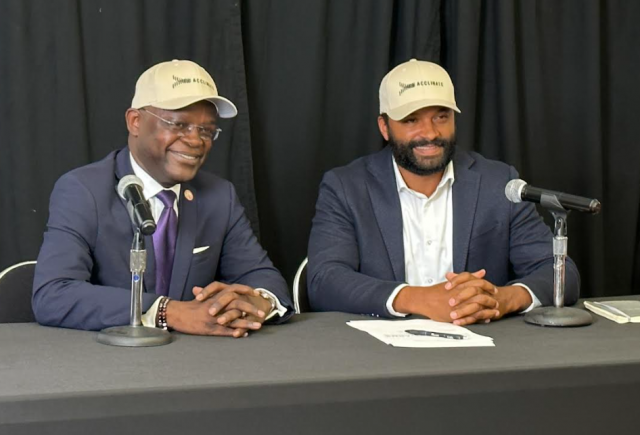
By Ryan Michaels
The Birmingham Times
Alabama Regional Medical Services and Acclinate, a Birmingham-based inclusive health research startup, on Tuesday announced a clinical research partnership that could provide life-saving treatments for Birmingham residents, according to officials.
“The unfortunate reality is, for far too long, the communities that are most in need, have had the greatest challenges with awareness of and access to clinical trials that sometimes provide novel life-enhancing and life-saving treatments,” said Del Smith, Ph.D., co-founder and CEO of Acclinate.
ARMS, a federally qualified health center (FQHC), primarily serves low-income residents of Birmingham, a city in which almost 70 percent of the population is Black.
Acclinate offers health information and other content, as well as easy access to clinical trials, through its NOWINCLUDED app.
The partners will identify research, educational and funding opportunities to support the research infrastructure and operations at ARMS.
Their missions are “weaved together” by their interest in “health equity,” Smith said. “Health equity means we’re trying to figure out ways to decrease or eliminate the disparities that exist that we all hear about all too often in our communities.”
The partnership enables ARMS to provide potential new treatments for a variety of chronic diseases that its patients often experience, including cancer, diabetes and hypertension, said Ted Greer, CEO of ARMS and leader in clinical trials and community participatory research.
He said Acclinate is playing a “pivotal role” in building out the research extension.
“With Acclinate as a partner, we are strengthening our relationships with research organizations, helping our patients receive the best care and opportunities possible,” he said. “We pride ourselves on offering our patients premier health care options, particularly to those who are high risk.”
He said, “I don’t want to just serve patients. I actually want patients to feel better. I want them to do better. I want us to have some positive health outcomes. Acclinate is giving us an opportunity to do that,” he said.
Tiffany Whitlow, co-founder and chief development officer of Acclinate, said ARMS is already “deeply embedded in communities serving patients.”
“Together we have an opportunity to go in and do the education and engage their patient base, who’s never been engaged before and provide an opportunity to have clinical research available at [ARMS] where [patients] already trust and visit frequently,” Whitlow said.
Whitlow said Acclinate is set apart by its “people-centric” approach to facilitating research.
“We build our solutions, any solution we have from our company, on real people’s lived experiences, so this is no different for us as a company. This is us going to the actual patients, to the actual people, who could participate in research, and have an opportunity to maybe add years onto their life … ,” Whitlow said.
Smith said the partnership is simply “the beginning of a lot of hard work” that he believes will be noticed nationally.
“I believe people are watching this. There are a lot of [FQHCs] around the country that are trying to figure out how they can bring these types of treatments to their patient populations … and I think they’re going to look at this partnership is a model that they can duplicate.” Smith said.




